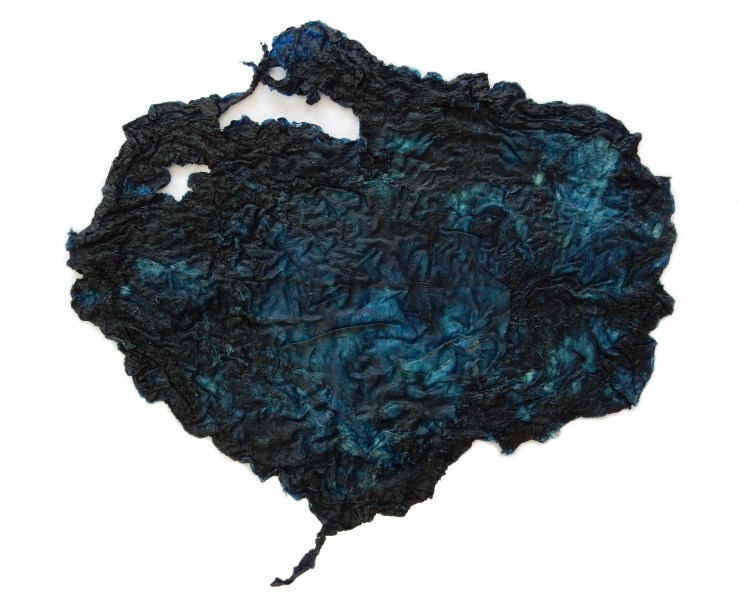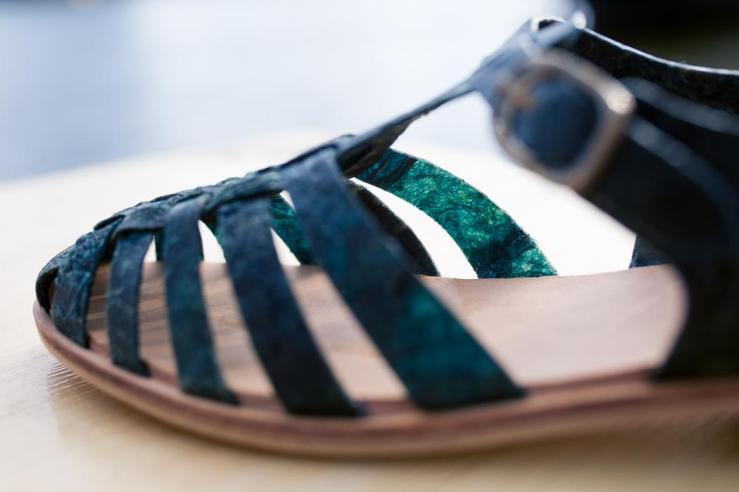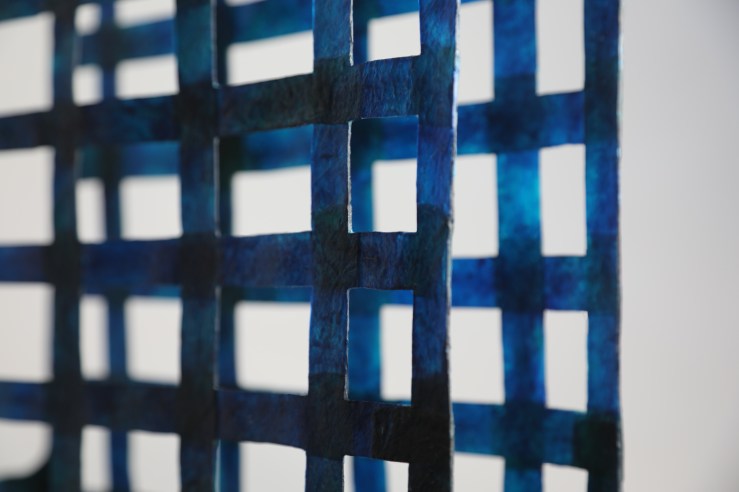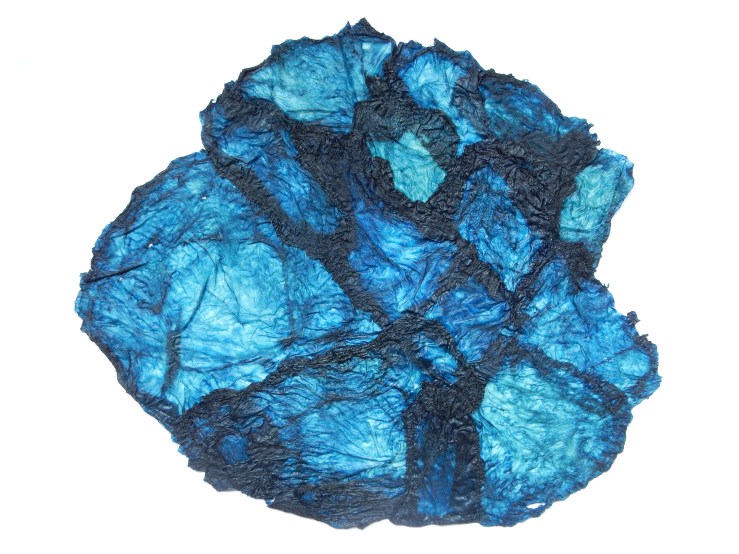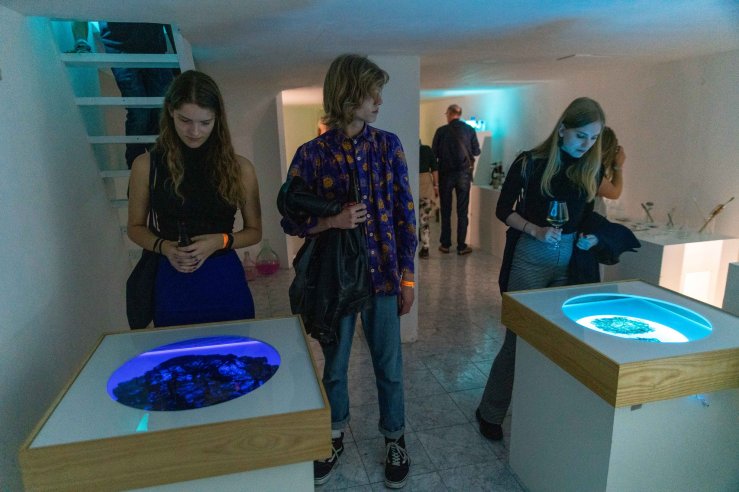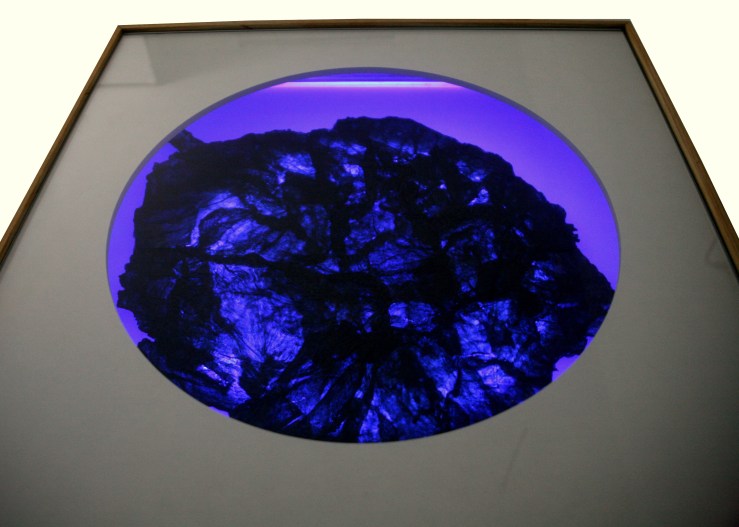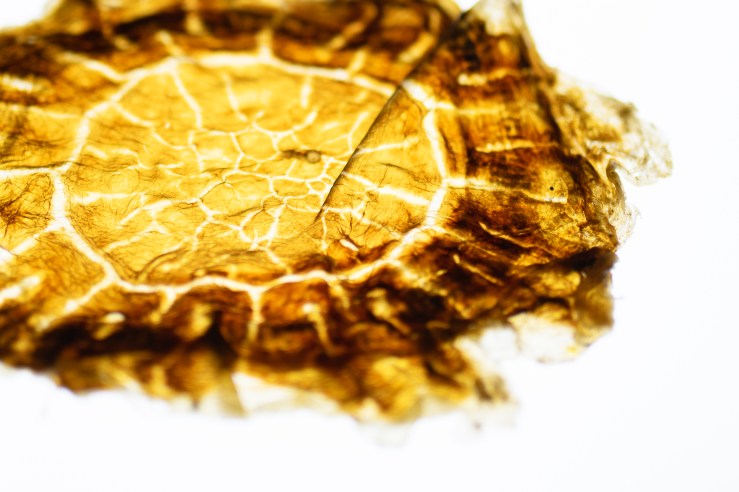
Morphogenesis Jellyfish
Primary Cell Culture Research – Rhizostoma Pulmo Jellyfish, Radboud UMC, 2022
120 cm x 80 cm

What will the future look like? 2022
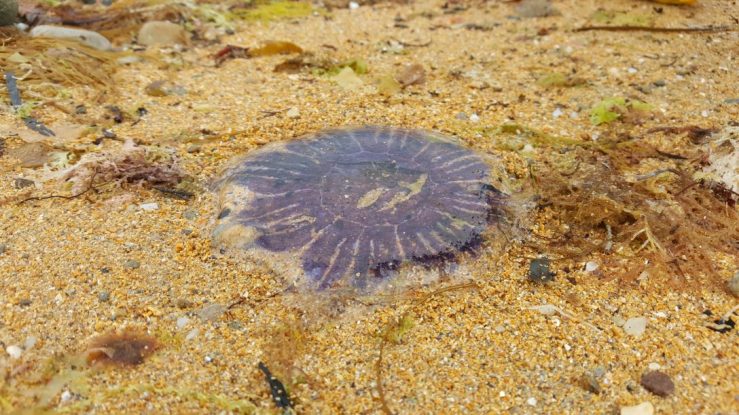
Medusae Project
Inspired by washed up jellyfish, this project set out to explore the potentential of Jellyfish Collagen using art and science.
World wide there is an increase in jellyfish blooms due to the changing sea waters, as a result of overfishing, chemicals, and rising sea temperatures. Jellyfish thrive because of their intriguing ability to adapt and survive. However, many are washed up on shore due to sea currents. The Medusae project give them a new life to them through a preservation process.
The Medusae Project values preservation and regeneration: inspired by observing nature and its organic processes, in alignment with artistic practice, crafts and design. Researching historical artefacts and perspectives, combined with futuristic visions has led to surprising experiments that are transformed to material compositions and prototype.
MORPHOGENESIS JELLYFISH
Jellyfish are ancient organisms. Their history goes back 600 million years. Their building blocks can be considered as one of the most essential amino acids from which other life arose from. Collagen is the most abundant protein on earth.
Humans and jellyfish have more in common than you might have thought of. Jellyfish collagen is already employed within the biomedical context, to heal wounds. Jellyfish collagen adapts very well to the human skin. Could jellyfish collagen play a role in the future of symbiotic fashion? How can regenerative techniques be employed within biodesign garments? These are some of my questions of interest for my biodesign practice.
For the research of Morphogenesis Jellyfish, a cell culture research was conducted with tissue cells of the Rhizostoma Pulmo jellyfish . The aim of this research was to measure the regenerative aspects, such as cell division and collagen production of cells under stress.
Which differentiations will take place under extreme circumstances? This experiment shows new insights and possibilities regarding the regenerative properties of jellyfish collagen for biodesign and adapting to climate change, are considered.
The temperature that these cells were cultured was 37 degrees. The temperature of the North sea lies between 5 and 20 degrees. This research showed the cells can stay alive under extreme circumstances, taking into account that the sea temperatures will keep rising in the future.
Microscopic images: 2000x magnification, all original colors.
Research in collaboration with the Radboud UMC (Roger Lomme and Jan-Maarten Luursema – Regenerative medicine lab).
Project sponsored by Stimuleringsfonds and Prins Bernhard Cultuurfonds, 2021.

.
.
